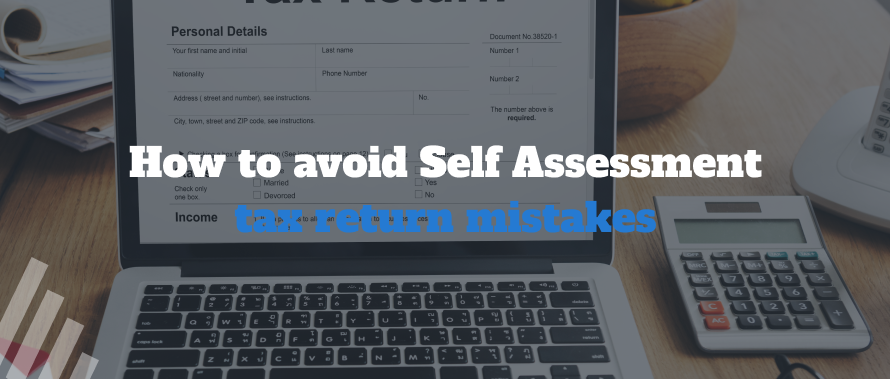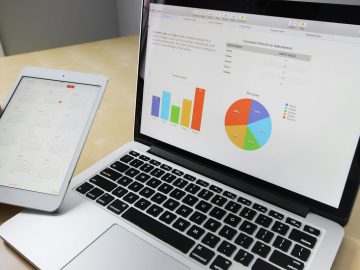For the self employed, landlords and business owners, getting your Self Assessment tax return right is extremely
important.
However, you need to know how to avoid Self Assessment tax return mistakes, as getting things wrong on your tax
return could lead to penalties or a higher tax bill. This blog explores the most common tax return mistakes.
First lets cover some of the basics around Self
Assessment tax returns.
Book a call with an expert
What is a Self Assessment tax return?
Self Assessment is used by HM Revenue and Customs (HMRC) in the UK to deduct income tax from individuals who are
self-employed or generate income that isn’t taxed through PAYE. If you earn income that isn’t taxed automatically by
your employer, you’ll need to declare that income to HMRC and pay the appropriate amount of tax using a Self
Assessment tax return.
Put simply, a Self Assessment tax return is a form that declares your income that is sent to HMRC. From this HMRC can
calculate your tax liability for the year. It should include details of income from all sources.
Who needs to file a Self Assessment tax return?
People who need to complete a Self Assessment tax return are:
- You are self-employed or receive self-employed income.
- You earn property income. This could be as a landlord with a multi-property portfolio, or if renting out a
single property. - You are part of a business partnership.
- You qualify to pay the High Income Child Benefit charge.
- You are a company director whose income is not covered under the Pay As You Earn (PAYE) system.
- You want to claim tax relief on employment expenses (for expenses in excess of £2,500 in a single year).
- You earn foreign income.
- You owe capital gains tax.
- You earn income via savings, investments or dividends.
Self Assessment deadlines
It is important that you file your tax return on time, as you will incur a penalty for missing the filing deadline.
You must tell HMRC by 5 October if you need to complete a tax return and have not sent one before.
You will need to register for Self Assessment online at the HMRC website.
Deadline for submitting a paper return
If you’re doing a paper tax return, you must submit it by midnight 31 October 2024.
Deadline for submitting an online return
If you’re doing an online tax return, you must submit it by midnight 31 January 2025.
Most common Self Assessment tax return mistakes
Mistake 1: Incorrect figures or incomplete information
Lacking knowledge of how to complete a tax return correctly is a common mistake by many people. Sometimes it’s just a
case of people getting their figures wrong when adding up their income and costs. This then leads to incorrect
figures being entered into their Self Assessment tax return.
Often people miss important questions or sections on the tax return. If this happens, HMRC will request the
information when it notices omissions in your tax return. This can lead to additional work, unnecessary delays or
worse, including a higher tax bill or penalties.
Mistake 2: No Unique Taxpayer Reference (UTR)
A UTR (unique taxpayer reference) number is a 10-digit number completely unique to each and every UK taxpayer.
If it’s the first time you need to file a Self Assessment tax return, then you will need to set up a Self Assessment
account with HMRC to obtain a Unique Taxpayer Reference (UTR).
You need a UTR before the Self Assessment deadline of 31 January, or you could incur a late filing penalty. You
should register for Self Assessment by 5 October in the tax year you are submitting for, but if you haven’t
registered by this date, you should not get a penalty. However, register as early as possible to ensure you have a
UTR before your first tax return is due.
If you have lost your UTR number, you may be able to find it on previous tax returns and correspondence from HMRC.
Mistake 3: No Government Gateway user ID-H3
The Government Gateway is a way that HMRC verifies your identity when using online services. You will need a
Government Gateway User ID before setting up a Self Assessment account.
Losing your Government Gateway User ID or making a mistake when quoting this is a common mistake that people make.
Keep your Government Gateway User ID safe at all times.
Some people forget to register for a Government Gateway account before they are due to complete a tax return.
If you haven’t registered online with HMRC and don’t currently have an account you can register on the HMRC website here. To
register, you will need things like your address, National Insurance number, a recent payslip, or P60, or a valid UK
passport.
It can take up to 10 days to receive your activation code from HMRC, so ensure you register early.
If you have lost your User ID, you can recover it online at the GOV.UK website.
Mistake 4: Not taking advantage of tax-free allowances
Unless you are a tax expert or accountant, then you may not understand what tax-free allowances are available to you.
The most common tax-free allowance is the personal allowance. The standard Personal Allowance is £12,570, which is
the amount of income you do not have to pay tax on.
Your Personal Allowance may be bigger if you claim Marriage
Allowance or Blind Person’s Allowance. It’s smaller
if your income is over £100,000. For example,
Marriage Allowance allows a person to transfer unused personal allowance to a spouse.
You don’t need to apply for the personal allowance, but you may have to apply for others.
There are other allowances you may need to be aware of such as:
Dividend allowance
- Trading allowance
- Savings allowance
Because of the complexities of tax reliefs and allowances, its wise to employ an accountant such as dns accountants to file your Self Assessment
tax return on your behalf.
Mistake 5: Not declaring income from all sources
Under Self Assessment you will need to declare income from all sources for the year. This should include sources from
which you have had tax deducted already.
For example, if you have a job in which your tax is deducted through PAYE, you need to inform HMRC and declare your
income earned through PAYE on your return. If you don’t, you may end up paying more tax than you need to.
Some of this information may now be generated on your tax return automatically However, you should not always trust
automatically generated data as it is often inaccurate. Always check it against things like payslips etc. as
mistakes could have been made by your employer.
The way to check what you’ve earned in a year is via your P60 or P11D. This will show how much you earned and how
much tax was paid in the last tax year. You can then use this to check or enter the figures manually on your tax
return.
Sources of income must you report via Self Assessment
Here is a list of income you must declare on your Self Assessment return:
1. Employment income
2. Self-employment income
3. Rental income
4. Savings interest
5. Pension payments
6. Share dividend payments
7. Capital Gains made
Mistake 6: Claiming disallowed expenses
HMRC will allow certain expenses that will reduce your tax bill. Allowable expenses are tax-deductible costs that you
can offset against your tax bill. These essential business costs differ if you are self-employed, sole trader, or
run a limited company.
Examples of allowable expenses you may be able to claim are:
- home office
- travel and transport
- office supplies and equipment
- professional services
- staff expenses
- marketing, advertising and branding
- training and professional development
You must keep accurate records, invoices or receipts of all expenses claimed, as HMRC could ask to see them in the
future.
A legitimate expense must have been incurred ‘wholly and exclusively’ for the purposes of running the business and
be allowable for tax purposes.
Find out more about sole
trader allowable expenses here.
Find out more about limited
company allowable expenses here.
Mistake 7: Not planning for payments on account
Payments on account are the advance payments you have to make to HMRC towards your Self Assessment tax bill.
There are two instalments each tax year and each payment represents half of the previous year’s tax bill. HMRC
payments on account are designed to help people to better manage their cash flow. The due dates for payments on
account are midnight on 31 January and 31 July each year.
Many people don’t plan or save in advance for payments on account.
You don’t have to payments on account if your last Self Assessment bill was under £1,000, or you’ve already paid over
80% of all tax you owe.
We encourage people to put away money each month towards their personal tax bills. If you think that you won’t be
able to afford your payment on account, you can arrange to make regular monthly or weekly payments by setting up a
budget payment plan to help you
spread the payments.
If you miss the payment deadline, you’ll be charged interest and may have to pay a penalty.
Remember, if you are earning significantly more this year compared to your last tax return put more money away as you
will be required to pay the balance of any tax owed.
Mistake 8: Missing the self assessment filing and payment deadline
The HMRC Self Assessment online submission deadline is on 31 January every year.
You’ll pay a late filing penalty of £100 if your tax return is up to 3 months late. You’ll have to pay more if it’s
later, or if you pay your tax bill late. You’ll also
be charged interest on late payments.
Mistake 9: Not claiming tax relief on private pension contributions
If you make private pension contributions, you can get tax relief on private pension contributions worth up to 100%
of your annual earnings.
You’ll either get the tax relief automatically, or you’ll have to claim it yourself. It depends on the type of
pension scheme you’re in, and the rate of Income Tax you pay.
You get this tax relief automatically if:
- your employer takes workplace pension contributions out of your salary, or
- you contribute towards a private pension and pay Income Tax at 20%, as your pension provider should claim the
basic tax rate relief and add it to your pension pot
If are a higher rate taxpayer or additional rate taxpayer, you will need to claim the extra 20% and 25% through your
Self Assessment tax return. This relief may be given back in the following ways:
- as a reduction in your current tax bill
- as a tax rebate
- as a change in your tax code (i.e. you will pay less tax next year)
Mistake 10: Not claiming relief on charitable donations
Donating to charity could reduce your tax bill.
Donations by individuals to charity or to community amateur sports clubs (CASCs) are tax free. The tax goes to you or
the charity. How this works depends on how you make the donation.
This also applies to sole traders and partnerships. There are different rules for limited companies.
Other common Self Assessment mistakes
There are many other errors that can occur when submitting tax returns and these include:
Not being aware of the High Income Child Benefit Tax Charge: You may have to pay the High Income Child Benefit
Charge if you or your partner have an individual income that’s over £60,000 and you or your partner get Child
Benefit or someone else gets Child Benefit for a child living with you and they contribute at least an equal amount
towards the child’s upkeep.
Incorrect National Insurance number: It is important to submit an accurate NI number on the return.
Using the wrong tax code: It’s important that you use the correct tax code. You can check it on tax codes page of the government website.
Ticking the wrong boxes: On a tax return, there are many tick boxes. Unless you take great care, it is easy to
tick the wrong boxes and doing this could significantly affect your next tax bill.
What to do if you make a mistake with your tax return
You have 12 months from submission of your tax return to correct any mistakes made.
If HMRC finds problems with your return, this could result in paying too much tax, not paying enough or receiving a
penalty notice.
HMRC may decide to open a tax investigate into your tax affairs if there are inconsistencies on your different
returns over the years.
How dns accountants can help with your tax return
Are you unsure about how to file your Self
Assessment tax return? Don’t let the complexities of the UK tax system confuse you! At dns accountants, we
offer expert services to ensure your tax return is accurate, compliant, and submitted on time. Whether you’re
self-employed, a landlord, or someone with multiple incomes, we simplify the process of filing Self Assessment Tax
Return for you, avoiding costly penalties and ensuring you only pay what’s required.
Contact us today 0330 088 6686 can also e-mail us at enquiry@dnsaccountants.co.uk
Speak with an expert
Any questions? Schedule a call with one of our experts.
About the author
![]()
Gary Zouvani
I am a qualified chartered management accountant with over 25 years’ experience working in industry and accountancy practise. Currently DNS group operations director I manage over 50 employees as well as head up our accountancy franchise proposition.




